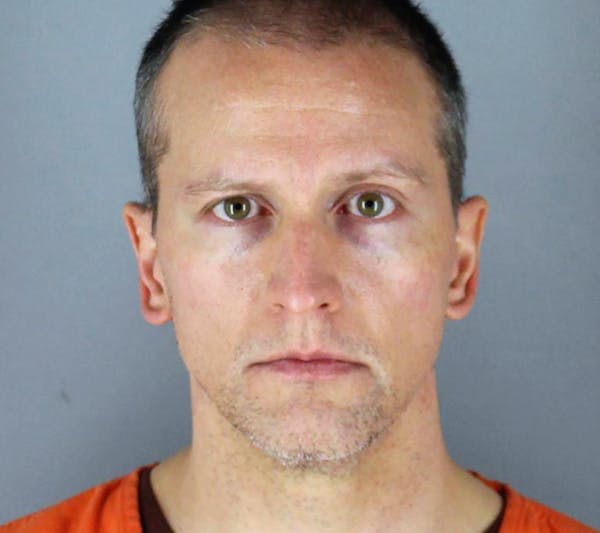Derek Chauvin and Tou Thao — two of the officers involved in killing George Floyd May 25 — both took department training on preventing suffocation in people being restrained face down, the Minneapolis Police Department confirmed.
In one of his most forceful comments yet on Floyd's killing, Minneapolis Police Chief Medaria Arradondo issued a statement Monday night, saying, "Chauvin knew what he was doing."
"Mr. George Floyd's tragic death was not due to a lack of training — the training was there," he said. "This was murder — it wasn't a lack of training. This is why I took swift action regarding the involved officers' employment with MPD," Arradondo said.
While a number of public officials in Minnesota, including Gov. Tim Walz, have started calling Floyd's killing a murder, it appears to be the first such public statement by the police chief. Department of Public Safety Commissioner John Harrington called Floyd's death "murder" on May 29, just hours before Chauvin was charged with second-degree murder, third-degree murder and manslaughter.
Arradondo released his statement late Monday in response to public records requests for specific training records after questions were raised about whether the Minneapolis Police Department ever fulfilled a promise in a 2013 settlement to require all sworn officers to undergo training on the dangers of positional asphyxia.
Arradondo said that the MPD "went beyond the requirements" of the settlement. It not only provided the training, he said, but changed its policies in 2014 to "explicitly require moving an arrestee from a prone position to a recovery position when the maximal restraint technique is used and require continuous monitoring of an arrestee's condition."
He went on to say that the MPD continues to emphasize training on the tactics: "There is simply no way that any competent officer in MPD would be unaware of the need to get an arrestee into a recovery position so that he or she can breathe freely."
Chauvin's lawyer, Eric Nelson, is not commenting on the case.
The 2013 settlement stemmed from a lawsuit filed by the family of David Cornelius Smith, a black man who died in 2010 after police pinned him face down, while handcuffed, on the floor of the downtown YMCA in Minneapolis. The city paid the family $3 million to settle the claims.
Earlier this month, Smith's sister Angela Smith and a family lawyer made an impassioned plea to the city's civilian Police Conduct Oversight Commission to find out whether the training the family won as part of its settlement was ever conducted.
In an interview, Jeff Storms, a lawyer who represented the Smith family in its lawsuit, said he wants to verify the chief's claim.
"The statement that was released by the chief does not satisfy our concerns and we will continue to do our due diligence to ensure that the settlement agreement was complied with," he said.
In a WCCO television interview Tuesday, Lt. Bob Kroll, the head of the Minneapolis Police union representing rank-and-file officers, said he did not disagree with Arradondo's statement.
"From what we've seen there, it's very tough to refute that," Kroll said in the interview. "But that's for the criminal justice system to decide."
Afsheen Foroozan, chairman of the Police Conduct Oversight Commission, could not immediately be reached for comment. Commission member Abigail Cerra said she couldn't speak for the commission, but added that as a lawyer she was "stunned" by the statement.
"As a prosecutor I would jump on that, calling Rondo as a witness and having Rondo testify about the training that was provided, how often it was provided, testifying as to which officers attended the training," Cerra said.
Cerra, who, along with the Star Tribune filed public records requests for the training data, said she still hasn't received a response from the MPD and wants to see the records.
"It's taken three weeks to get an answer about was this training requirement met," she said.
Marshall Tanick, a defense attorney who has represented law enforcement personnel, said he was "flabbergasted" by Arradondo's statement.
"It could significantly prejudice his right to a fair trial," Tanick said of Chauvin. "I'm fairly sure that the defense team will raise this comment in conjunction with other comments made by public officials to seek dismissal of the charges or at least a change of venue."

Racist slur on pedestrian bridge in Rochester prompts investigation
Police recover 124 cats from Crystal home; woman charged with felony animal mistreatment
Spring's hot gift book features gorgeous found-nature photos
Victim in north Minneapolis shooting identified as man from Chicago

